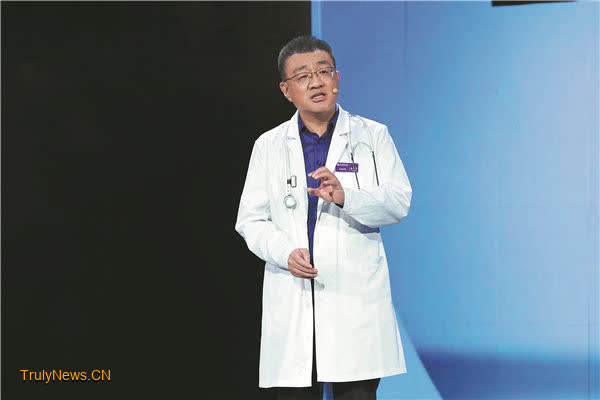
Doctor offers readers a better understanding of medicine at its most critical point, Yang Yang reports.
Bo Shining, a 49-year-old chief physician from the Intensive Care Unit of Peking University Third Hospital, arrived at the interview on a hot summer afternoon after a night shift. With an iced Americano in hand, he answered the questions with a doctor’s sobriety and reason.
But when he recalled the medical case that inspired him to become a doctor specializing in intensive care, a teardrop slid down from the corner of his right eye.
More than two decades ago, Bo chose clinical medicine as his university major because “it’s difficult to get into”, he says.
In his fifth year of university in 1997, Bo, a curious intern at a hospital, came across a very important patient — his 20-year-old younger brother, also a university student, who was critically ill as his kidneys were failing quickly due to unidentified reasons.
Without a pathological examination basis, and judging from the symptoms, Bo believed that the cause was rapidly progressive glomerulonephritis, a dangerous disease in the kidneys with a mortality rate of 80 to 90 percent within six months without proper treatment. Even if some patients survived, they would have to rely on renal dialysis for the rest of their lives.
Considering such a terrible prognosis would happen to such a young man who was otherwise very healthy, and seeing his father, a tough man who served in the army, crying, tears rushed from Bo’s eyes.
Desperate to save his younger brother, Bo misjudged the cause of the disease. Luckily, a reputed doctor corrected his mistake, saying that it might be epidemic hemorrhagic fever but they needed a test to confirm the diagnosis.
Bo took his brother’s blood sample to a provincial center for disease control that was 3 kilometers away by bicycle. On the second day, it was raining heavily. When Bo took the test result that confirmed the expert’s diagnosis, he rushed back in the pouring rain, forgetting his bike.
Soon his brother fully recovered from the disease without any long-term effects.
“This is the first critical case that I encountered in my career. I realized that illnesses can quickly devastate a family and intensive care medicine can save many people’s lives,” he says, which is how he decided to become an ICU doctor.
In 2001, after graduating from the Peking University Health Science Center, Bo entered the ICU at PKU Third Hospital.
As he has strived to keep critically ill people alive and experienced life and death every day for more than two decades, he began questioning how to improve people’s ability to cope with diseases.
“After all, the number of people that doctors can save is limited. If you wait until an illness becomes severe before going to the hospital, even the most skilled doctors will find it difficult. But if people can gain a comprehensive understanding of medicine and grasp basic medical knowledge, perhaps by attending a ‘concise medical college’ through reading, then we won’t be so helpless when faced with diseases,” writes Bo in the preface of the book Bo Shining Yixue Tongshi Jiangyi (Medicine in a Nutshell), published in 2019.
The book was one of the first of its kind in China, in which Bo summarized his understanding of health, disease, life and the medical profession based on his 18-year work experience.